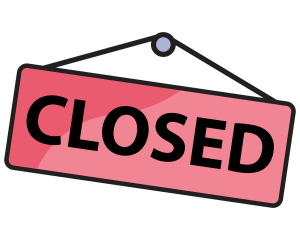Starting vs Buying a Business
17 July 2023: Starting vs Buying a Business
We consult with business owners all the time and have been doing so for more than 20 years. But we also advise hopeful entrepreneurs and “wannabes”. In this hopeful and wannabe category, we found that people want to be their own boss. They want to own a business.
Owning your own business is, of course, one the the three ways for ordinary people to become financially independent in America. And there are two roads to business ownership: starting one that you can build, grow and eventually sell and buying one, grow it more and sell. Which do you think is easier?
__________________________________________________________________________________
We offer a comprehensive coaching program – both group coaching in our Brokers’ Roundtable℠ community as well as one-on-one coaching – tailored to Realtors, business owners, buyers and anyone interested in valuing, buying or selling a business.
If you’d like to learn more, email me at jo*@*******************og.com
___________________________________________________________________________________
 According to data from the U.S. Bureau of Labor Statistics, approximately 20 percent of small businesses fail within the first year. By the end of the second year, 30 percent of businesses will have failed. By the end of the fifth year, about half will have failed. And by the end of the decade, only 30 percent of businesses will remain — a 70 percent failure rate.
According to data from the U.S. Bureau of Labor Statistics, approximately 20 percent of small businesses fail within the first year. By the end of the second year, 30 percent of businesses will have failed. By the end of the fifth year, about half will have failed. And by the end of the decade, only 30 percent of businesses will remain — a 70 percent failure rate.
Admittedly, these are round numbers. They’re also averages. Some industries – healthcare for example – have better success rates; others, far worse.
This is not to say that you shouldn’t start a business. Other than the first few years out of school when I worked in banking, I’ve been a business owner my whole life; and I started each of the businesses I owned. But the failure rate of new businesses is very high and an aspiring business owner should be aware of that fact.
But starting a new business is only one way for owning one. The other is buying.
Buying a Business: The Downside
The perceived downside of buying a business is that the buyer has to pay for what the current owner has built. There’s no boot-strapping in buying a business.
Unless you’re funded with a couple of million in venture capital, when you start a business – a restaurant, lawn care company, healthcare service, auto repair, specialty wholesaler/distribution, small manufacturer or whatever – you’re starting out small, doing pretty much everything and scraping to get buy. As previously stated, the odds of long-term success are not favorable.
_____________________________________________________________________________________
Our course, “Learn How to Value and SUCCESSFULLY Sell Businesses“, teaches you how to accurately value and successfully sell businesses.
Starting a business is notoriously difficult.
The founders of most businesses underestimate the amount of money they’ll need to ramp up to profitability. Between marketing, operations, accounting, hiring, etc., in many cases, the founder doesn’t have all the skills to start and grow the business. Granted, some of these needs can be outsourced but some must be performed in-house. This means employees; or, at the very least, partners.
Buying a Business
Rather than starting a business, buying one offers several benefits.
Existing clients and customers
An existing business has a client or customer base. You will not have to build that base from scratch and assume the risks that starting a business – which, of course, has no customers – entails. People are already coming in the door and paying for whatever products or services the business offers. Yes, you may well want to expand that customer base but you will have the luxury of knowing that, absent taking your eye off the ball, the business will continue to function – and generate revenue – while you do so.
Existing Revenue
 If you buy an existing business, at the end of your first day on the job you will be able to make a deposit of funds from sales. There is no small amount of security in this knowledge, a fact that I can attest to as having started several businesses myself, not all of which were successful. Buying an existing business, while always fraught with some level of anxiety, significantly reduces the likelihood of sleepless nights and the bulk purchase of antacids.
If you buy an existing business, at the end of your first day on the job you will be able to make a deposit of funds from sales. There is no small amount of security in this knowledge, a fact that I can attest to as having started several businesses myself, not all of which were successful. Buying an existing business, while always fraught with some level of anxiety, significantly reduces the likelihood of sleepless nights and the bulk purchase of antacids.
It is difficult to overstate the importance of existing revenue and the security it provides. Both starting and buying a business entail some risks but buying a business enables you to see the future much more clearly insofar as you can see the business’ past performance and can be reasonably secure in a steady revenue stream as you get acclimated to your new environment.
(The Brokers Roundtable℠, an online community created and hosted by Worldwide Business Brokers, has scheduled a live interview with Roland Davis, of Davis Business Appraisers. We’ll be discussing the ins and outs of business valuations and equipment appraisals including what’s needed for a business valuation and how a valuation can be used when marketing a business. Be sure to join this informative discussion – 3.00 PM (Eastern/New York) this Thursday, 20 July. At the conclusion of that discussion there will be a Q&A during which attendees can get their questions answered by a pro. But you’ve got to be a member to attend. You can sign up for The Brokers Roundtable℠ here.)![]()
Financing is Easier
Try getting a lender to finance a start up.
 An acquisition of an existing business is hard enough to get financed. Getting a startup financed – at least conventionally – is almost impossible. Lenders are more willing to look at financing the purchase of an existing business because that business has a history, probably some assets and it’s likely that the seller is going to be part of the financing, thus ensuring the lender that the person who built the business will have a vested interest in making sure it continues to function, if not grow.
An acquisition of an existing business is hard enough to get financed. Getting a startup financed – at least conventionally – is almost impossible. Lenders are more willing to look at financing the purchase of an existing business because that business has a history, probably some assets and it’s likely that the seller is going to be part of the financing, thus ensuring the lender that the person who built the business will have a vested interest in making sure it continues to function, if not grow.
In addition, many jurisdictions offer financial support to qualified buyers of existing businesses. At the national level in the United States, this support comes from the U.S. Small Business Administration (SBA). There are also state a regional programs meant to support businesses that might be available. After all, even though it’s often difficult to believe based on their actions, most governments know how important businesses are to the health and desirability of their area.
There are similar programs in most western countries.
Buying a Business is Easier
Now, I’m not talking about a lemonade stand here, but starting a business is a challenge. It involves setting up the business from a legal standpoint, establishing an entity and registering that entity with all the appropriate government offices. Once your business is a “thing”, you must build and establish a presence online – a website and social media accounts. You must start sourcing products or materials, establishing vendor accounts, make sure your new business meets all the licensing requirements and secures all the appropriate permits. You have to start looking for the appropriate location to site the business and establish a physical presence. You must analyze, choose, source and set up all the furniture, fixtures and equipment needed to operate the business. While you’re doing all that, you have to recruit, interview and hire staff to help run the business. You’ll need to set up policies and procedure manuals, employee manuals, payroll systems and deal with countless other administrative headaches that will tax your patience and lead to even more sleepless nights.
When you buy an existing business, all these things have been done and are in place. Once you make the decision, you walk in the door of your “new” business and all cylinders are firing. You can focus immediately on growing the business.
The Bottom Line
Some people have the mental and psychological make up to be founders. In our experience, most don’t. But many more people have what it takes to run an existing business.
A decision as to whether to buy an existing business or start one from scratch depends on many variables, not least being the risk tolerance of the buyer. But for all the reasons mentioned above, buying a business would, at least from my perspective, seem like the easiest and least risky route to get into the CEO’s office.
I’d like to hear from you. What topics would you like me to cover? How can we tailor these posts to be more useful to you and your business. Let me know in the comments box, below, or email me at jo*@*******************og.com.
If you have any questions or comments on this topic – or any topic related to business – I’d like to hear from you. Put them in the comments box below. Start the conversation and I’ll get back to you with answers or my own comments. If I get enough on one topic, I’ll address them in a future post or podcast.
I’ll be back with you again next Monday. In the meantime, I hope you have a safe and profitable week.
Joe
Searching For…
NOTE TO READERS: This is the final month our “Searching For…” feature will be included in our blog posts. We’re moving it to our online community, The Brokers Roundtable℠ and it will appear there exclusively beginning 1 August.
A private equity firm seeking opportunities in commercial services (maintenance/cleaning, HVAC/electrical/plumbing, logistics, testing services) and home services with at least 20 employees, a management team, U.S.-based and $5 million in annual revenue.
If any of you know of something that might fit, please let me know.

#business #businessacquisition #sellabusiness #becomeabusinessbroker #businessbrokering #businessvaluation #MergersandAcquisitions #buyabusiness #sellabusiness #realtor #realestateagents
The author is the founder, in 2001, of Worldwide Business Brokers and holds a certification from the International Business Brokers Association (IBBA) as a Certified Business Intermediary (CBI) of which there are fewer than 600 in the world. He can be reached at jo*@*******************og.com

